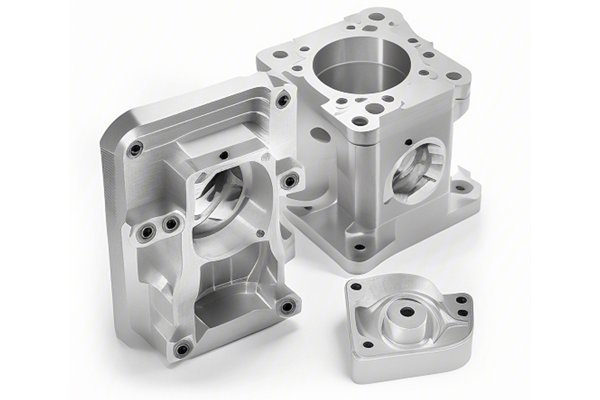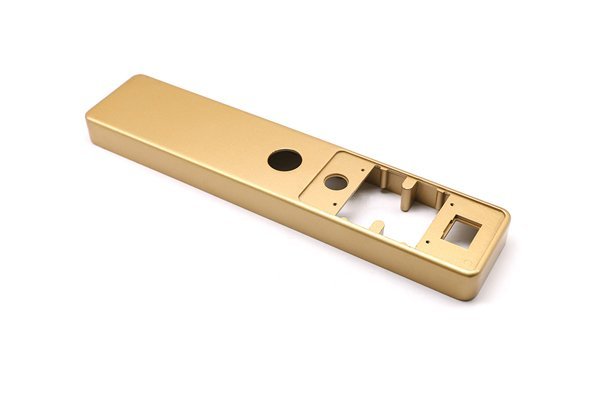Did you know that brass, a versatile and durable metal alloy, has been used for thousands of years in various applications, from coins and jewelry to plumbing and electrical connectors? This long-standing popularity attests to its exceptional properties, making it a favored choice for designers and manufacturers. But how do you get the most value from brass when it comes to precision machining? The answer lies in custom CNC brass machining, a method that offers significant advantages over traditional manufacturing practices.
In this blog post, we will explore the intricacies of CNC brass machining, highlighting its benefits, applications, and factors to consider when opting for custom solutions. With a detailed approach, we aim to provide insight into why this process is essential for your projects and how it can elevate your manufacturing capabilities.
Understanding CNC Machining
What is CNC Machining?
Computer Numerical Control (CNC) machining is an advanced manufacturing process that utilizes computer-generated commands to control machinery and tools. The precision of CNC machining allows for highly accurate cuts and intricate designs, making it an essential method in various industries.
How Does CNC Machining Work?
CNC machining works through a series of steps:
Why Choose Brass for Machining?
Brass exhibits excellent resistance to corrosion, making it suitable for applications exposed to moisture and harsh conditions. This property ensures that brass components can maintain their integrity over time, reducing the need for frequent replacements.
Brass is an ideal material for CNC machining due to its favorable machinability. Its low friction coefficient allows for smooth cuts and reduces wear on tools, ensuring that manufacturing is efficient and cost-effective.
Brass has an attractive gold-like color that enhances the visual appeal of finished products. This quality is particularly important for decorative items, automotive parts, and other applications where aesthetics matter.
Brass is well-known for its excellent conductivity, making it suitable for electrical applications. When precision is key, custom CNC brass machining can produce parts that meet the exact specifications required for electrical connections or components.
The Benefits of Custom CNC Brass Machining
One of the most significant benefits of custom CNC brass machining is the level of precision it provides. CNC machines can create parts with tolerances ranging from ±0.001 inches to ±0.0001 inches. This accuracy is particularly crucial when dealing with intricate components where even the slightest error can result in malfunction.
Custom CNC machining allows for a wide range of design possibilities. Whether you need complex geometries or simple shapes, CNC machines can deliver precisely what you envision. As a result, manufacturers can create unique products tailored to specific requirements without being limited by traditional machining constraints.
For companies looking to test new designs, custom CNC machining provides an affordable solution. The rapid prototyping capabilities of CNC machines mean that businesses can develop functional prototypes quickly, allowing for adjustments and refinements based on performance testing.
CNC machining is highly scalable. Whether you need a single prototype or mass production of thousands of parts, CNC machining can accommodate your needs with relative ease. This scalability ensures that your project can grow without requiring significant changes in the manufacturing process.
With the efficiency of CNC machining, businesses can expect faster project completion times. The ability to automate processes reduces human error and minimizes downtime, leading to quicker delivery without sacrificing quality.

Custom CNC brass machining optimizes raw material usage. Advanced programming minimizes waste, ensuring that most of the brass block is transformed into a finished product rather than being discarded. This efficiency translates into cost savings for businesses.
Applications of Custom CNC Brass Machining
Custom CNC brass machining plays a vital role in various industries. Here are some noteworthy applications:
In aerospace, precision is non-negotiable. Custom CNC brass components are used in fitted hardware, fasteners, and specialized brackets, ensuring safety and reliability during flight.
Brass parts are commonly used for fittings, connectors, and valves in automotive applications. Custom CNC brass machining allows manufacturers to create specific components that fit perfectly within the vehicle design while meeting stringent industry standards.
Brass components are prevalent in electronic devices due to their excellent conductivity. Custom CNC machining can produce connectors, insulators, and other parts needed for high-performance electronic equipment.
Plumbing fittings and valves often utilize brass for its corrosion resistance and longevity. Customized CNC brass machining enables manufacturers to create parts designed to withstand pressure and temperature variations in plumbing applications.
Brass is often favored for decorative fixtures, hardware, and home décor items. Custom CNC machining allows artisans and manufacturers to create intricate designs that enhance the beauty and appeal of various products.
Key Considerations for Custom CNC Brass Machining
When opting for custom CNC brass machining, there are several factors to keep in mind to maximize its benefits:
Choose the right brass alloy for your specific application. Different brass alloys have varying properties, including strength, corrosion resistance, and machinability. Understanding these differences can help you select the most suitable material.
Work closely with your CNC machining provider to create designs that maximize efficiency in production. Simplifying complex designs or ensuring that the design can be easily machined can lead to cost savings and faster turnaround times.
Select a manufacturing partner with expertise in custom CNC brass machining. Their experience and knowledge can make a significant difference in the quality of the final product, as well as in the efficiency of the manufacturing process.
Clearly define the tolerance levels required for your parts. Establishing these specifications upfront will help manufacturers meet your expectations and ensure the parts fit seamlessly into their intended applications.
In conclusion, custom CNC brass machining emerges as a powerful solution for industries that require precision, efficiency, and high-quality output. From aerospace to electronics, the benefits of using custom CNC brass parts are evident, ranging from enhanced aesthetics to improved performance.
As we’ve discussed, the ability to produce tailored designs, rapid prototyping, and efficient scalability makes CNC machining a valuable asset for your project needs. The key to unlocking these advantages lies in understanding the intricacies of the process and working with a knowledgeable manufacturer.
By considering the advantages, applications, and key factors associated with custom CNC brass machining, businesses can make informed decisions that ultimately drive success. The importance of this topic cannot be understated, as embracing modern machining techniques will help propel your projects forward and keep you competitive in today’s ever-evolving market.
As you reflect on this information, consider how custom CNC brass machining might optimize your existing processes and enhance your product offerings. The future of manufacturing is here, and it’s time to take advantage of it.



